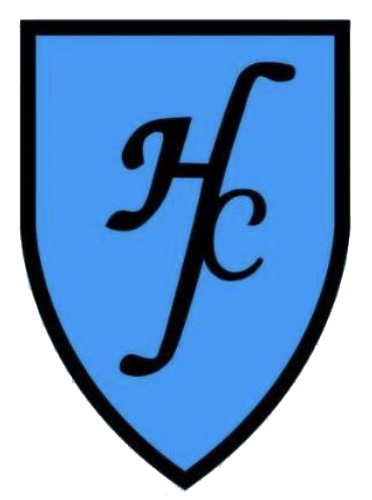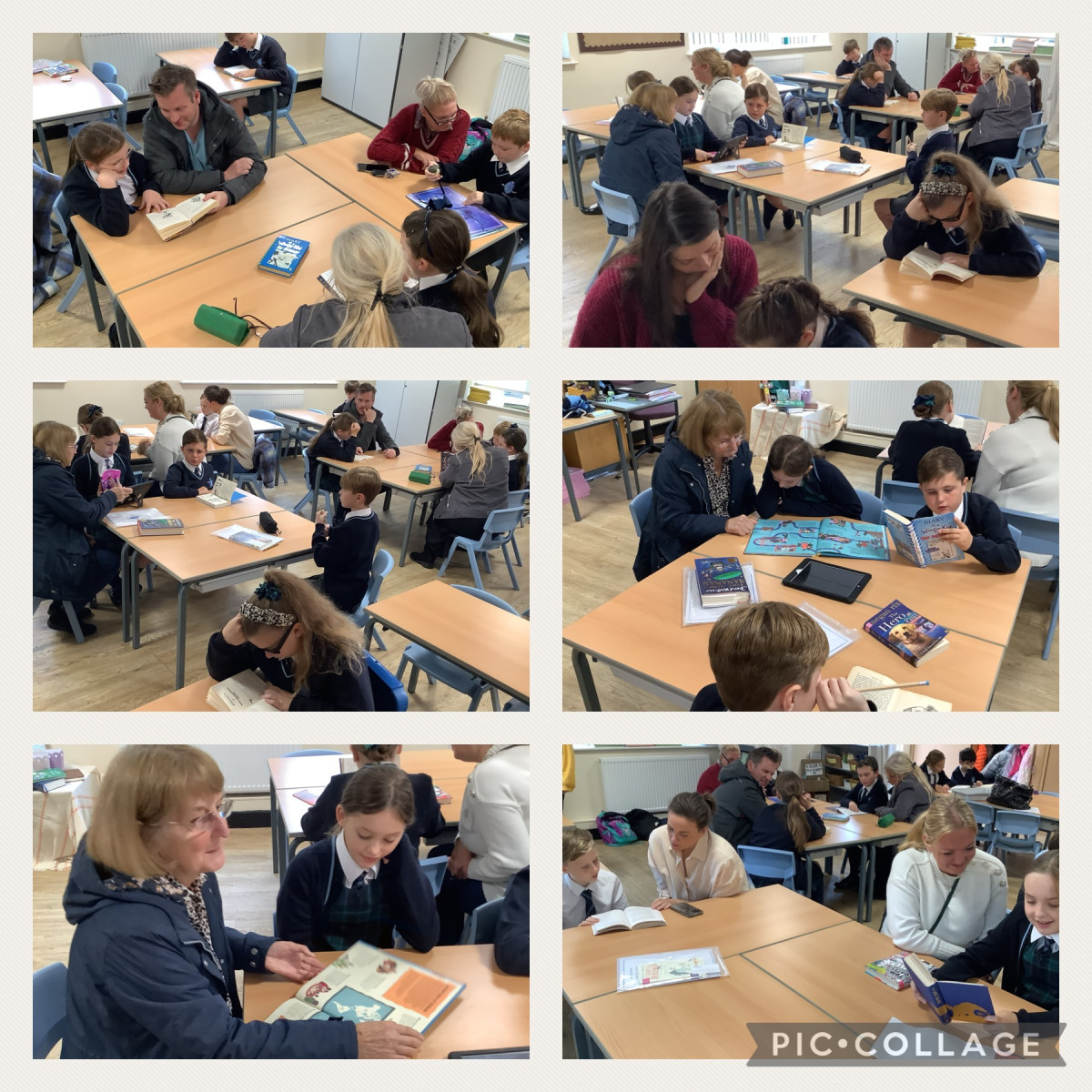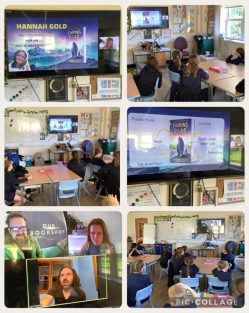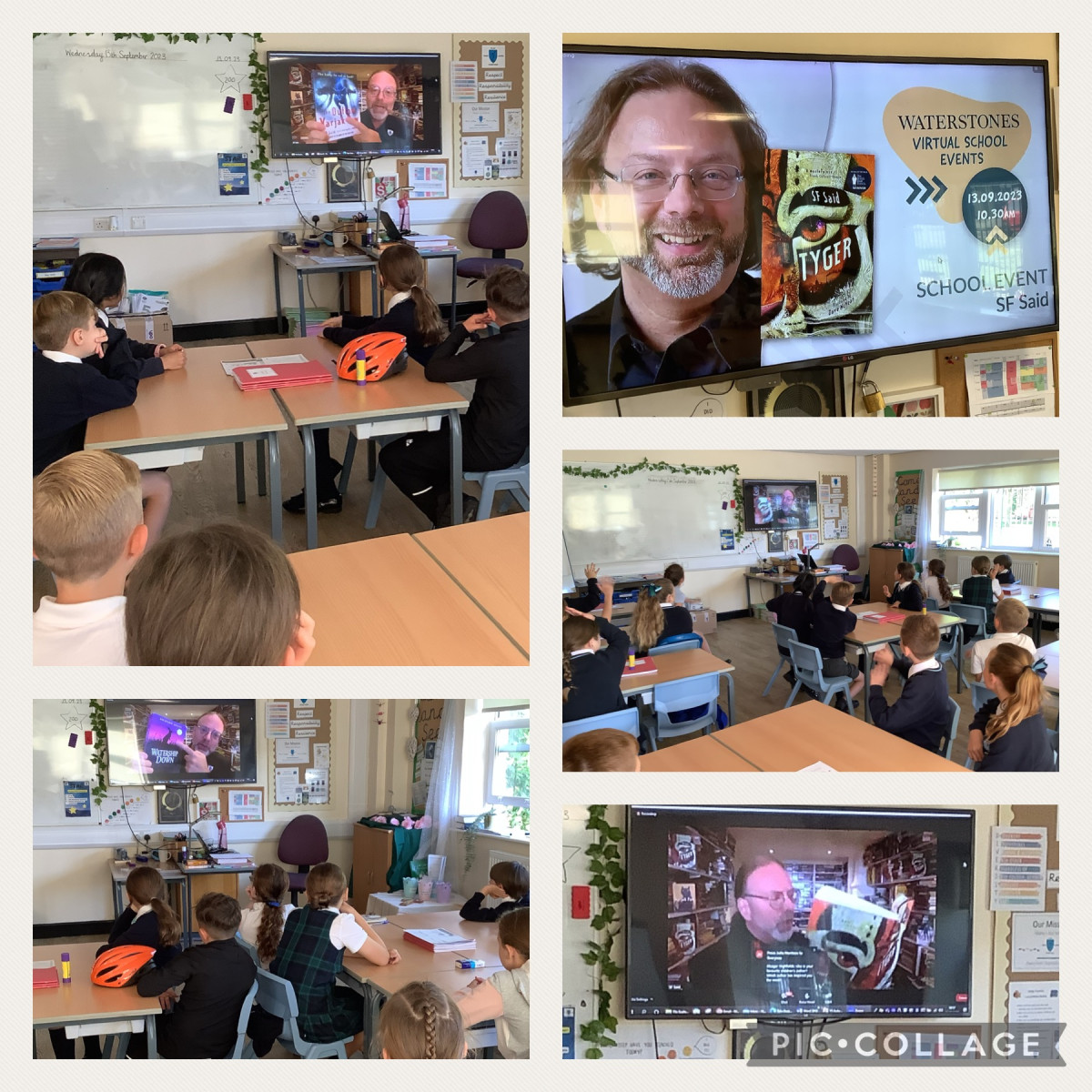 Reading
Reading
We believe that reading should be an enjoyable activity and our approach to the teaching of reading is firmly rooted in this belief. It is our aim to develop in children a love of reading and an ability to read with understanding for pleasure and for information which will inspire and motivate them to read throughout their lives.
In the Early Years and Key Stage 1, there is a great emphasis on the teaching of phonics and reading. We teach early reading through the systematic, synthetic phonics programme Little Wandle Letters and Sounds Revised. In Reception, children take part in a daily phonics lesson which follows the progression for Little Wandle Letters and Sounds and this continues in Year One to ensure children become fluent readers. At Key Stage 2, we extend and develop each child’s reading skills. Our children are able to explore reading through a range of strategies and structures that support their fluency and comprehension skills to help them become competent readers in addition to quality-first teaching in the classroom. In Key Stage 2, reading is taught in whole class sessions. These sessions are based on the overarching theme of each class underpinned by the anchor text as well as additional texts which support the theme. Sessions are also based on the wider curriculum, including Inspire/Aspire. These sessions aim to develop rich discussion where children are encouraged to share their own opinions and thoughts.
Children across the whole school are given books to read at home. These may be decodable phonics books in EYFS and Key Stage 1, reading scheme books or books from the class or school libraries. In EYFS and Key Stage 1, we believe that in order to develop a love of reading your child should also have access to high-quality children’s books in addition to decodable books. These books should offer you and your child an opportunity to explore exciting stories or things of interest but most of all will continue to support the development of your child’s vocabulary and sense of story structures. Therefore, alongside decodable phonics books, children will receive a story book to share with adults at home. This engagement with stories from an early age will pave the way for children to become self-motivated and habitual readers as they progress through the school.
When in Key Stage 2, children build on their autonomy by taking more responsibility for their own reading choices. At Holy Family, we use Accelerated Reader in Key Stage 2; children can choose a book appropriate to their stage of reading development to support progress in word reading and fluency, and a second book without restrictions from within the libraries as a free choice book to encourage and nurture reading for pleasure. Every class enjoys designated daily story times, in which children can listen to stories, poems and non-fiction texts to develop a shared love of reading. During story time, children are always read to by the teacher. Book talk opportunities allow children to talk with their class about their reading habits so they can share information they have learnt, stories or poems they have enjoyed and to give reading recommendations to their peers.
The school has a library where children benefit from good quality reading materials, both fiction and non-fiction, in a variety of genres. Every classroom also has a reading area/class library with a wide range of books. In these spaces, children have opportunities to recommend to others and to also select stories and poems that they would like to be shared in class.
Reading curriculum
Reading Events at Holy Family
Thank you to all our grown-ups who came to school today for Stay and Read #WorldBookDay Everyone had a lovely time ???????????????? pic.twitter.com/dK10GzNZDu
— Holy Family Catholic Primary School & Nursery (@HFCronton) March 7, 2024
Nursery enjoyed reading Handa’s Surprise in the forest this morning. Then, the children used their imagination and creativity skills to build their own baskets just like the one Handa used to collect fruit for Akeyo.???????????? pic.twitter.com/AiNN1r4Oqy
— Holy Family Cronton Nursery and Reception (@hfcrontonEYFS) February 26, 2024
We have had such a lovely morning celebrating #NationalStorytellingWeek. Y5 and Y1 joined together with Y5 reading stories chosen by Y1. The children massively enjoyed sharing stories with each other in such a calm atmosphere. It also helped to create new friendships! ???????????? pic.twitter.com/9ei20HXXBu
— Holy Family Catholic Primary School & Nursery (@HFCronton) February 2, 2024
Y3 and Nursery had a lovely start to their morning today as they enjoyed reading together today for #nationalstorytellingweek. ⭐️???? pic.twitter.com/OYNnjkuLfb
— Holy Family Catholic Primary School & Nursery (@HFCronton) February 2, 2024
Delighted that Holy Family’s love for reading has resulted in a fantastic amount raised for @backuptrust and @spinalinjuries due to the quantity of books purchased!❤️????????????
Thank you again @GrandadWheels for a fantastic day! https://t.co/y2lO7yPoFZ— Holy Family Catholic Primary School & Nursery (@HFCronton) January 25, 2024
Y5 & Y6 participated in an webinar with author @HGold_author and illustrator Levi Pinfold, creators of ‘The Last Bear’, ‘The Lost Whale’ and their new book ‘Finding Bear’. We loved hearing the process between author and illustrator when creating a book. Lots of fans in HF! ???????????? pic.twitter.com/SR3WhLPOO7
— Holy Family Catholic Primary School & Nursery (@HFCronton) October 13, 2023
Here are our Y3 class performing “Little bit of food” by Joseph Coelho. They worked so hard and we think they did a super job!???? pic.twitter.com/3hXKig1Y1m
— Holy Family Catholic Primary School & Nursery (@HFCronton) October 11, 2023
It’s #NationalPoetryDay! Everyone in our school came together today to perform a poem which they have been learning in class. It has been wonderful to enjoy, share and discover poetry together. Well done! ???????????? pic.twitter.com/cGIfpnQuZT
— Holy Family Catholic Primary School & Nursery (@HFCronton) October 5, 2023
Thank you to all the grown ups for sharing a story and taking part in our #stayandread this morning! We had so much fun sharing our favourite stories!❤️???? pic.twitter.com/qLO2h2wutd
— Holy Family Cronton Nursery and Reception (@hfcrontonEYFS) October 2, 2023
Reception have loved learning about William Shakespeare and his play ‘The Tempest’ within their English lessons this week. The child have been busy during Continuous Provision creating their very own tempest and impressing their teachers with their wonderful writing ✍️ ???? pic.twitter.com/hwQ10SvaPN
— Holy Family Cronton Nursery and Reception (@hfcrontonEYFS) September 15, 2023
Year 6 were very excited to take part in a webinar with the author of the book Varjak Paw @whatSFSaid! The children read this book when they were in Year 4 and enjoyed it immensely. After hearing an extract from his new book ‘Tyger’, the children can’t wait to read it. ???????????? pic.twitter.com/dx48MXOWp5
— Holy Family Catholic Primary School & Nursery (@HFCronton) September 15, 2023
Reception learnt about Windrush Day by listening to a story by John Agard. We watched JoJo & Gran Gran & learnt that every family has a unique story! We talked about the contribution that the Windrush generation made to the U.K and the ship that brought some of them here. ⛴️ pic.twitter.com/gBPr8bn6Zu
— Holy Family Cronton Nursery and Reception (@hfcrontonEYFS) June 23, 2023
❤️❤️❤️❤️ https://t.co/d15D7Oz3JN
— Holy Family Catholic Primary School & Nursery (@HFCronton) June 16, 2023
Reception have been reading the story We're Going to Find the Monster! @malorieblackman @DapsDraws As there is a map in the story, we have been talking features of maps. This week we will be creating our own maps as we go on a hunt for our own monsters… pic.twitter.com/SlzLmn3B1b
— Holy Family Cronton Nursery and Reception (@hfcrontonEYFS) May 11, 2023
Don’t let the Year 3 Pigeons Drive the Bus! This afternoon our Y3 artists looked at how literature can inspire their making and explored exaggerating certain characteristics in their clay models to convey a sense of action and intention. What an impressive flock. ???? pic.twitter.com/oH1aoj1ukU
— Holy Family Catholic Primary School & Nursery (@HFCronton) May 4, 2023
Lovely to hear the language and story telling in our construction area this week as some children worked together to retell the story of The Lion King. pic.twitter.com/sA2Nmkwg77
— Holy Family Cronton Nursery and Reception (@hfcrontonEYFS) March 24, 2023
To help us discuss #neurodiversitycelebrationweek, Reception have been reading stories to help us understand and appreciate our differences. Here are some of the books we shared together. pic.twitter.com/9GPKHQz7By
— Holy Family Cronton Nursery and Reception (@hfcrontonEYFS) March 17, 2023
Year 4 had a great week last week enjoying all the activities around World book day. We really enjoyed reading with our families and our Year 2 friends???????? pic.twitter.com/eDRtLDWdi2
— Holy Family Catholic Primary School & Nursery (@HFCronton) March 9, 2023
What a fantastic start to @WorldBookDayUK reading for pleasure with family and friends!???????????????? pic.twitter.com/KLE9zYrPGL
— Holy Family Catholic Primary School & Nursery (@HFCronton) March 3, 2023
Year 2 really enjoyed having some interesting book characters in the classroom this week #WorldBookDay pic.twitter.com/CYAGc0ZKzn
— Holy Family Catholic Primary School & Nursery (@HFCronton) March 3, 2023
Such a lovely way to start #WorldBookDay2023 – reading for pleasure as a family @HFCronton pic.twitter.com/aCs0dqOWEd
— Beth Sharratt (@OrangNoTan) March 2, 2023
This year’s #childrensmentalhealthweek2023 theme is Let’s Connect. Y6 and Reception connected together by reading. It was lovely to see our caring and respectful older children reading to our youngest. ❤️???? pic.twitter.com/ENPkVb4mZf
— Holy Family Catholic Primary School & Nursery (@HFCronton) February 10, 2023
EYFS had a lovely morning making cheese and tomato pastries. We made them into swirly shells to link to our stories in Literacy. They were very yummy! ???? ???? pic.twitter.com/HpfN1OQ9X2
— Holy Family Cronton Nursery and Reception (@hfcrontonEYFS) January 13, 2023
Nursery have had lots of fun this afternoon exploring our new story spoons. We identified the main characters and remembered key phrases from the stories. For example: “I’ll huff,I’ll puff and I’ll blow your house down!” – Three Little Pigs. pic.twitter.com/kLVgV0ag4S
— Holy Family Cronton Nursery and Reception (@hfcrontonEYFS) January 30, 2023



